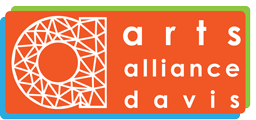Connecting the arts, fostering collaboration and building community.
Calendar courtesy of The Dirt.
There are several other great resources for finding arts and culture events, exhibits, performances, and other creative activities in the Davis area:
Davis Enterprise | UC Davis Arts & Entertainment | YoloArts | Visit Yolo

- This event has passed.
Author Talk: Susan Liebman
November 26 @ 6:00 pm - 7:00 pm
Free
About the Author
Susan Weiss Liebman, PhD, was among MIT’s early female undergraduate students, part of a pioneering wave of women entering the institution. With an MS from Harvard and a PhD in genetics from the University of Rochester, she served as a biology professor at the University of Illinois at Chicago, where she taught genetics and led a research group for more than three decades. She has published over 100 peer-reviewed articles. Later, she transitioned her lab to the University of Nevada, Reno. Along the way, she raised two children and now delights in four grandchildren alongside her husband of fifty-five years. Following the sudden death of her niece, Liebman became a medical detective and committed to promoting awareness of genetic testing.
About the Book
My niece was 36, newly married, and “on top of the world,” when she collapsed and died. Her autopsy report caused us to panic—there was something in our blood that could trigger sudden death. As a mother, I prayed for the curse to spare my children. As a geneticist, I plotted to find the killer. Without planning to do so, I became a medical detective.
The book tells of the sorrows a mutation caused my family for generations, revealing a history of resilience and hope. As the stories unfold, I weave in discussions about genetic testing, screening, and gene therapy. The aim is to raise awareness of the crucial role of genetic testing in safeguarding personal health and patient care. I believe I became a geneticist at a time when few women pursued this path because I was destined to help understand the family illness and advocate for genetic testing.
Experts agree on the value of genetic testing when there is a family history of disease, or if the patient has an illness frequently caused by a mutation. Knowing the disease mutation lets other family members find out if they have it too and need preventive care. The book explains that doctors can order tests with genetic counseling at relatively low cost and how this will help them prescribe preventive actions, make earlier diagnoses, and get better outcomes. The book’s genetic discussions also delve into the implications of broad-based genetic screening without a family history. Policymakers are currently considering the benefits and drawbacks of this approach and I present both sides of this debate.
While working on this book I uncovered a family secret hidden for over one hundred years. Family lore had it that a heavy dressmaker’s mirror fell on and killed my uncle when he was four. But the death certificate told a different story. The true cause of my uncle’s death was heart failure. My grandparents fabricated the dressmaker’s mirror accident to protect their surviving children’s marriage prospects. Long before the discovery of DNA, my grandparents intuited and feared James Watson’s message, “We used to think that our fate was in our stars, but now we know that, in large measure, our fate is in our genes.” The book suggests genetic testing and associated medical intervention can yet change our fates.
